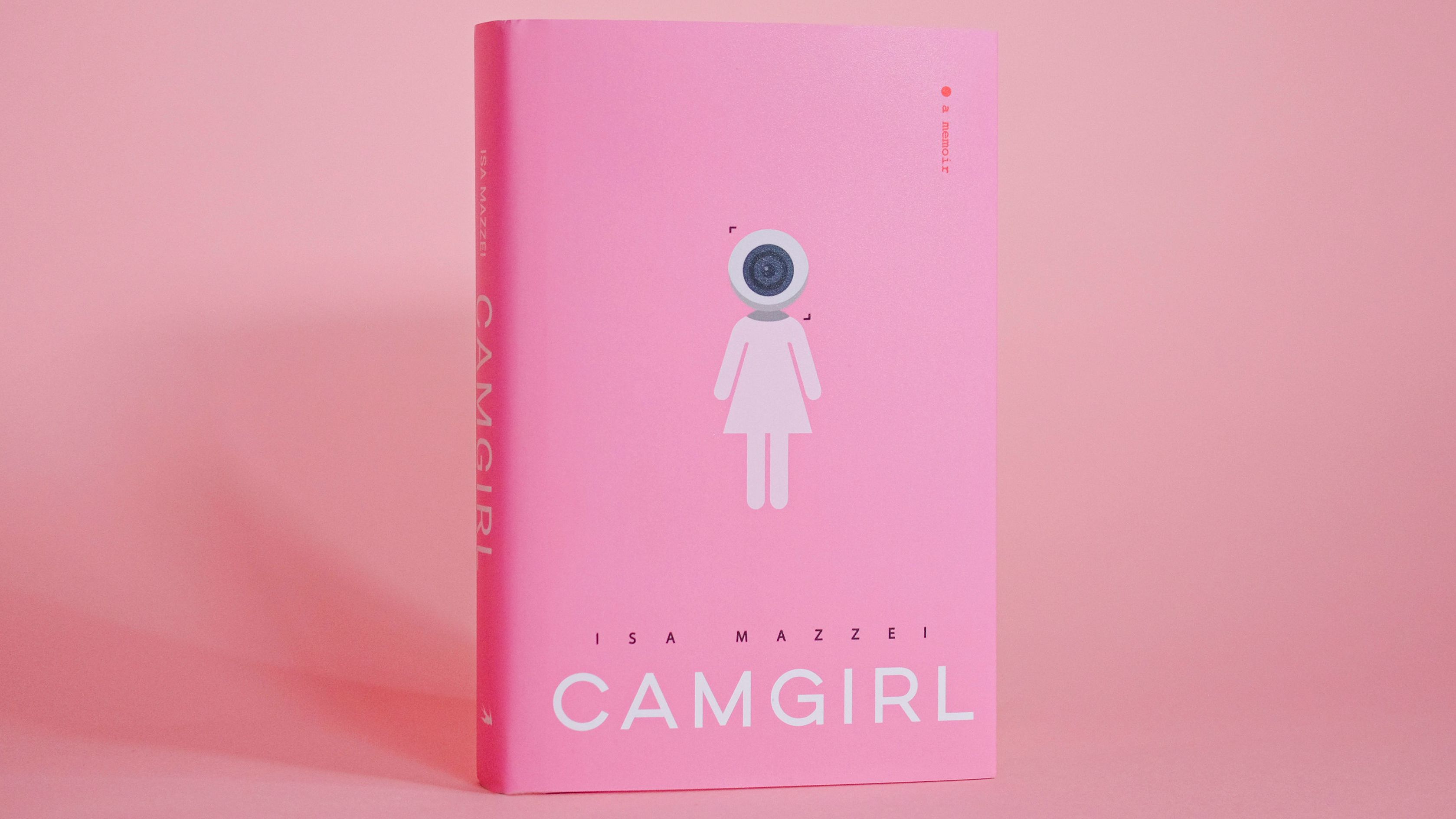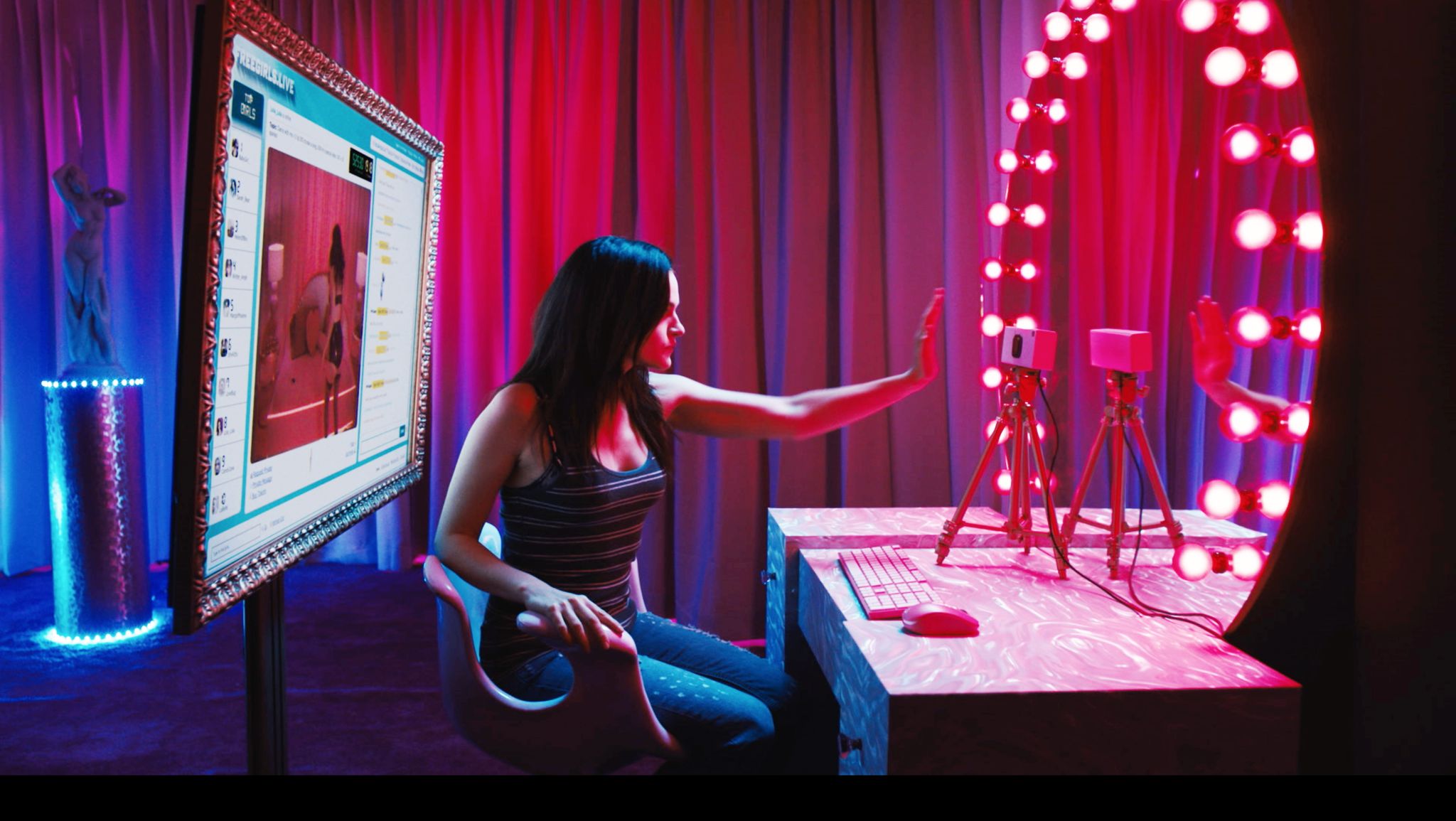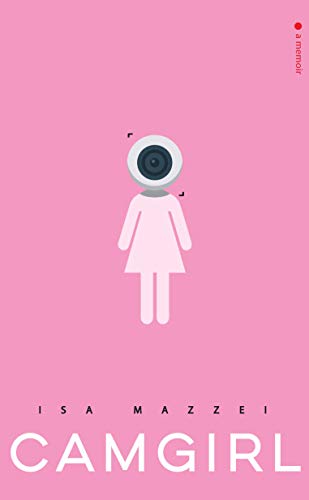Isa Mazzei's New Memoir Shows the Dark and Illuminating Sides of Life as a 'Camgirl'
A must-read memoir by former camgirl, Isa Mazzei, known for last year's Netflix thriller, 'Cam,' is a tour of the internet's darker corners.

Everyone has an opinion about porn, yet a lot of us avoid discussing it even with close friends or romantic partners. Which is why a book like Camgirl, Isa Mazzei’s frank conversation-starter (out today), should be required reading. The memoir centers on the year-and-a-half she spent making a living by live-streaming herself on a popular porn site via webcam. These are the same nervy experiences she drew from to create the hit Netflix thriller Cam, starring Madeline Brewer as a digital sex worker who faces off with a mysterious duplicate of herself.
“I had been thinking of a memoir since the process of selling Cam because people would ask ‘How much of this script is real?’” says Mazzei, now 28, about her new book. If the thought of performing intimate acts for an online audience makes you cringe, all the better reason to dive into Camgirl the way you’d jump into a chilly pool on a scorching day: It might take a few minutes to acclimate, but it quickly becomes refreshing to read about taboo topics ensconced within breezy honesty, self-awareness, and whip-smart humor.
Early chapters on the agony of high school crushes and first-time fumbles with intimacy are relatable, though Mazzei’s later journey into the adult entertainment world (including S&M culture and a hedonistic convention/awards gala in Vegas) will sometimes put you on edge. So it’s all the more exciting to discover that camming was her unconventional path to personal fulfillment and self-acceptance. We talked to Mazzei about how her explorations have given her a clear-eyed, unsentimental take on sex in the digital age and how we can all gain from them, no matter our predilections.
Marie Claire: What are some of the stereotypes and assumptions people placed on you as a camgirl before you started writing about it?
Isa Mazzei: I would meet someone at a bar or on a dating app, and since I was pretty open about the work I was doing, they made this immediate assumption, “Oh that means you want to have sex with me.” Another really common response was, “Oh my God, but you look so normal.” A lot of people still make flippant remarks like, “I wish I could just take off my clothes and make tons of money.” It’s kind of a shame that I had to become successful in something mainstream for people to take me seriously as a person.

Writer Isa Mazzei with actress Madeline Brewer at a festival screening of their film Cam
MC: You write about being in high school and having a need to make boys obsess over you, and that your peers sometimes judged you harshly for that. What do you wish they understood about you back then?
IM: I mean, that period in general, when I look back on it, I just feel like I had a lot of shame. I was definitely called a slut and a whore. Some of the behaviors that I had back then, the need for every boy to like me, to date guys and then break up with them and then jump to the next one—it was a way for me to attempt to protect myself. I always had a safety net around me of boys that I seduced in one way or another. There was also this struggle with being attracted to women that I felt I had to hide. I understood how to date men, but I didn’t know how to do that with women. So I just pushed that part of myself aside and ignored it.
Get exclusive access to fashion and beauty trends, hot-off-the-press celebrity news, and more.
MC: Surprisingly, you admit that some of your high school sexual encounters and camming experiences were not very satisfying to you. Was this something that you were consciously working through?
IM: Yeah, I think sex was something that always felt foreign. One of my friends in high school told me she was so excited to go home during her lunch period and have sex with her boyfriend. It just blew my mind because sex was something that I suffered through and something that I dreaded. Part of camming for me was about confronting this discomfort and saying, “Okay, where does this come from? Why do I feel this way?” And hopefully, “How can I move past it?”
MC: What are some other things you learned about yourself through camming?
IM: Camming, first of all, gave me a lot of confidence in myself. Confidence as a business woman and as an entrepreneur. It really showed me that I could create something that was successful—which was incredibly validating. Camming was also the first place where I learned that I could set and enforce boundaries around my body and my sexuality and that was also incredibly empowering.

Isa Mazzei, author of Camgirl
MC: How did you deal with performing for people who didn’t have healthy attitudes towards women?
IM: On the site I worked on, you can designate “room helpers” and give someone else the ability to monitor the room [i.e. the live feed that multiple users connect to]. If I felt like someone was being inappropriate with me, I called them out on it, and my room called them out on it, and sometimes they got banned. Even when I was doing the submissive shows, where I was bound and gagged and letting viewers dominate and degrade me, there were still certain things you were allowed to call me and certain things you weren’t. If a viewer continued to violate that, they were thrown out because sex is about consent.
A lot of men would come in and shame me for having pubic hair, like, “Why don’t you shave it? That’s disgusting!” And that was a moment to be like, “Why do you think that’s disgusting? This is a natural female body.” Sometimes I was able to change their mind and 10 minutes later have them not only apologize but also be thinking critically about their desire to come online and shame someone.
MC: You emphasize the artistry of developing a persona and how that’s what keeps online viewers interested. What are some creative moments you’re proud of?
IM: I’m really proud of the shows where we had conversations about real things like sobriety or grief. Incredible moments of just humans coming together in a place that I don’t think most people would expect it to happen. I had a lot of fun doing goofy or funnier shows, like painting shows where viewers would tip me to paint different things. And I’m a horrible painter! It was just so fun to be ridiculous.
MC: What insights did camming give you about sex in the 21st century?
IM: It gave me a really good perspective on how varied human sexuality is. One of my room mottos was “Don’t yuck someone’s yum,” which is, basically, as long as you have consent, don’t judge someone for what they enjoy. Luckily, in the past few years, there has been a large movement about destigmatizing female masturbation and destigmatizing sex toys. I’ve seen a huge increase in how much we’re talking about these things and wanting to change the conversation around them.
Don’t yuck someone’s yum. As long as you have consent, don’t judge someone for what they enjoy.
MC: What about for digital life?
IM: My mom always used to tell me, “Whatever you post on the Internet will be there forever.” So much of writing this book is about owning who I am. For so many years of my life, I was ashamed of myself. I wanted to hide myself. I wanted to be someone different. And now I’m in a place where I’m finally exactly who I want to be. And I think that owning all of the parts of me, and these parts of me that exist online, is a huge part of that. The internet—this digital space—can be incredibly violating and it can be incredibly harmful, but it can also be this beautiful space where you can create communities and find people that you really relate to.
MC: Most people don’t cross the line of putting revealing pictures of themselves out there—let alone create porn—because they fear it will limit their options in life. Have you suffered consequences?
IM: I think that’s a huge consideration and it’s absolutely real. Sex workers are discriminated against all the time for the work they currently do, for work they did in the past. You’re not allowed to talk about it for fear of being fired, or not being allowed to live in an apartment building where you want to live, or not being allowed to put your kids in the school that you want them to go to. There are so many sex workers who are shadowbanned on Twitter and Instagram for posting pictures that are essentially the same as what many non–sex workers post [without repercussion]. It’s not only dehumanizing but it also perpetuates violence against sex workers, because it normalizes discrimination.

MC: How can people who use porn to enhance their sex lives help to make the industry better, safer, and fairer?
IM: People should pay the porn that they consume. That is the most important thing. Pay for your porn and tell people that you pay for your porn. Make paying for porn normal. Often there are ways to pay for your porn directly from the performers. And I think when numerous sex work organizations and advocacy groups come out against a piece of legislation [that conflates sex trafficking with sex work], it’s important for people to listen and amplify that message so that legislators can understand the harmful effects of what they’re doing.
MC: What’s next for you?
IM: I’m working on an episode for [producer] Sam Raimi’s show 50 States of Fright, which is very exciting! Just shot that this past week. And I have two feature films in development. And I also have another book that I’m working on. Camgirl is, for me, the beginning of something.
For more stories like this, including celebrity news, beauty and fashion advice, savvy political commentary, and fascinating features, sign up for the Marie Claire newsletter.
RELATED STORY

Carl Kelsch is the Managing Editor of Harper’s Bazaar. He’s also a screenwriter whose short films of varying quaility can be found smattered among the interwebs.

